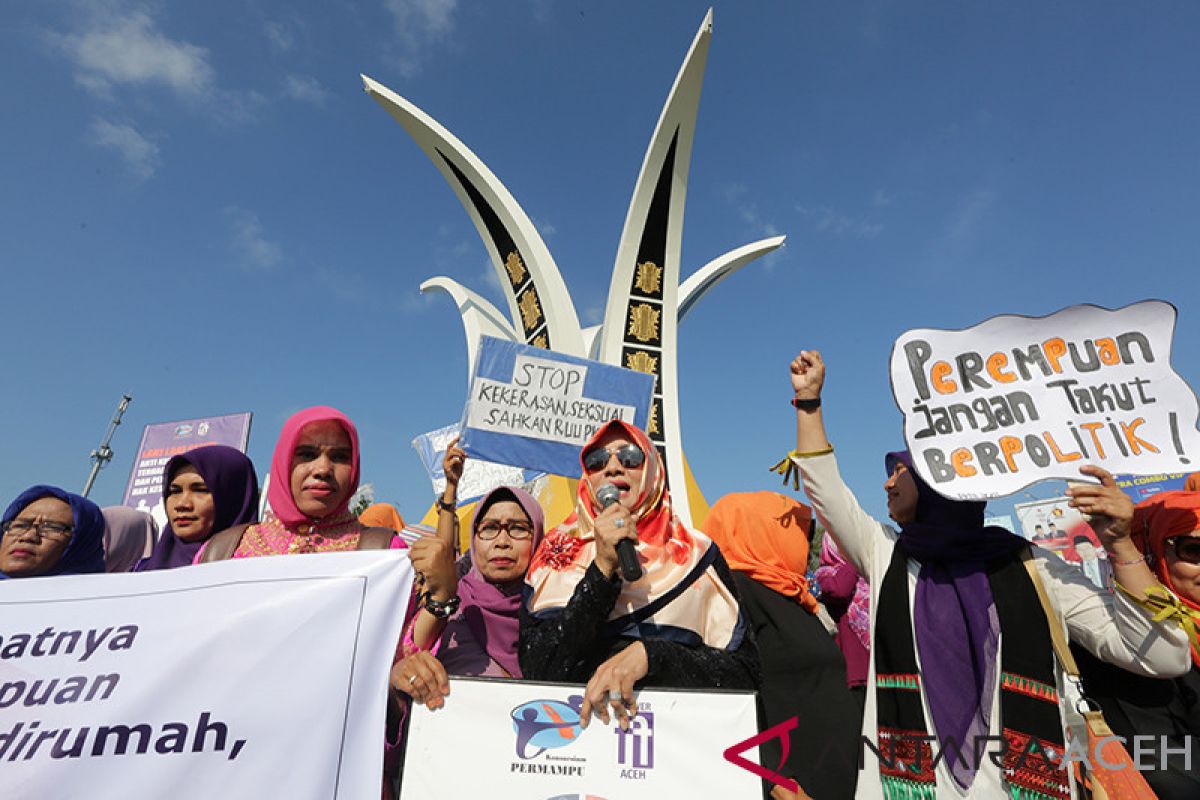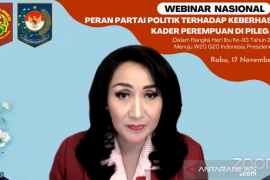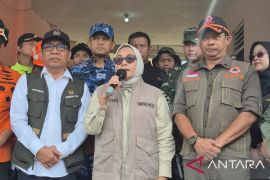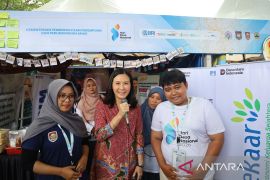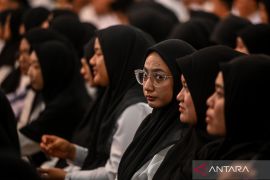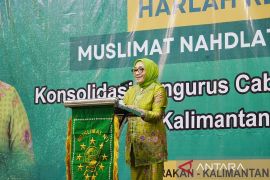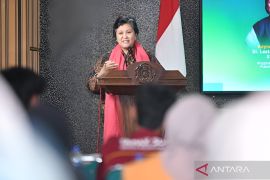Executive Director of the Association for Elections and Democracy (Perludem) Khoirunnisa Nur Agustyati stated that the effort to encourage women's representation in politics has been made since a long time.
Moreover, this effort still needs to be fought for to this day.
Welcoming the 2024 General Election, the issue of women's representation in politics remains a topic of discussion for gender equality activists and general election observers in Indonesia.
Thus, it begs the question, why is this important and how are women represented in Indonesia's politics?
Related news: Bawaslu pushes for women's participation in organizing of elections
The urgency of women's representation in politics
Increasing women's representation in Indonesia's politics had been stipulated within the law.
Article 2, point (2) of Law No. 2 of 2011 on changes over Law No. 2 of 2008 on Political Parties stipulated that political parties should have women constitute 30 percent of their members in their founding.
Another regulation, Article 245 of Law No. 7 of 2017 on General Election stipulates that candidate lists should have at least 30 percent women's representation.
Moreover, the country implements a zipper system stipulated within Article 246, point (2) which states that within a candidate list, for every three candidates, there should at least be one woman.
The gender affirmation policy above should not just become a mere rhetoric. According to Agustyati, the presence of women in politics can bring about transformative political ideas.
Through women, pro-gender policies can be realized. This is because women have unique experiences that men do not have, she stated.
Earlier, Program Officer at the International NGO Forum on Indonesian Development (INFID) Rizka Antika also echoed this statement. She said that diversity in politics plays a central role.
The presence of women in the decision-making process is deemed to be able to stem the hegemonic masculinity agenda in politics.
Hence, women should become involved in the decision-making process and not just be a descriptive representative but also a substantive representative.
Moreover, a researcher from the Banten Institute for Governance Studies Imron Wasi explained that the presence of women in the decision-making process is useful to handle gaps in access, rights, and roles for women.
This means that women's representation in politics becomes important to realize a more inclusive democracy.
The United Nations (UN) also underlined the importance of participation and equal opportunity for women in politics through the Sustainable Development Goals (SDGs). From these goals, the UN placed gender equality as the fifth goal.
The UN encourages full and effective participation as well as equal opportunity for women to lead in all levels of the decision-making process in politics, economy, and society.
This is apparent from two indicators: the proportion of seats occupied by women in the national parliament and regional governments as well as the proportion of women in managerial positions.
Women's representation trend
Looking back, the representation of women in politics, specifically in the parliament, shows a positive trend.
Based on Statistics Indonesia, the number of women occupying seats in the House of Representatives (DPR) changes from time to time, but the figure does tend to increase.
In 1955, when the first general election was held, the number of women chosen as DPR members only reached 16, or 5.88 percent.
Thereafter, in the 1971 and 1977 elections, the number of women parliament members continued to increase, specifically 31 women, or 6.74 percent, and 37 women, or 8.04 percent, respectively.
This figure continued to increase. In the 1982 election, 42 women, or 9.13 percent, managed to secure a parliament seat.
Five years thereafter, women's representation in the DPR in the 1987 election increased by up to 59 women, or 11.80 percent.
Until the 1992 election, there were 62 women council members, or 12.40 percent. While this figure declined in the 1997 and 1999 elections, it increased again in 2004, with 65 people, or 11.82 percent.
Women's representation continued to rise during the 2009 election. During that time, the number of women in the parliament was quite significant, reaching 100, or 17.86 percent.
However, this figure declined to 97 women, or 17.32 percent, during the 2014 election.
Meanwhile, the number of women in the 2019 election was known to be the highest figure throughout the history of General Election in Indonesia.
During that year, the number of women chosen to become parliament members reached 120, or 20.87 percent.
This upward trend for women's representation is certainly an achievement that Indonesia can be proud of. This means that Indonesian democracy is heading in a better direction.
Remaining unresolved issues
However, several problems still need to be handled by many parties. Based on the percentage, the number of women in Indonesia's legislative bodies had not reached 30 percent as mandated in the affirmative policy.
As Executive Director of Perludem, Agustyati outlined several methods that can be undertaken to optimize women's representation, including through existing regulations.
The affirmative policy described within the General Elections Law has not fully guaranteed women's representation, according to Agustyati.
Thus, she encouraged the existence of a more progressive regulation, such as penalizing political parties that do not comply with the 30-percent women's representation affirmation policy.
Moreover, changing women candidates' serial number can also make an impact. From the data gathered on the field, 60 percent of the chosen candidates have the number 1, according to Agustyati.
Meanwhile, women candidates are rarely placed in the top numbers during the general election. There should be a regulation concerning this serial number placement, she opined.
An equally important effort is encouragement from political parties. As the gateway for women's involvement, political parties should give women more access and equal assistance.
This involves improving the capacity of women members as well as placing them in strategic positions.
The women's representation affirmative policy is expected to not become a mere formality. This is because there is a foundational reason for why women should exist and be empowered in the political space.
In the end, women's representation in Indonesia's politics should be encouraged to create and maintain an inclusive democracy.
Related news: Women as election organizers handle female voters' problems: Expert
Related news: Women's political representation and gender-friendly policies
Translator: Fath Putra M, Fadhli Ruhman
Editor: Sri Haryati
Copyright © ANTARA 2023
